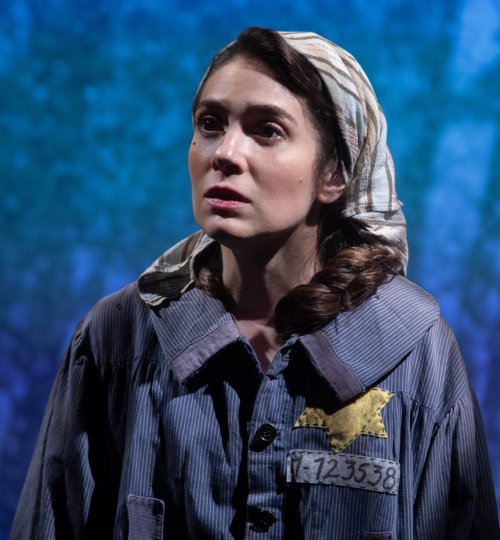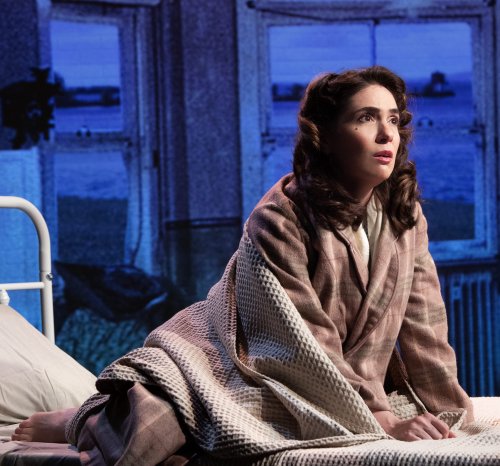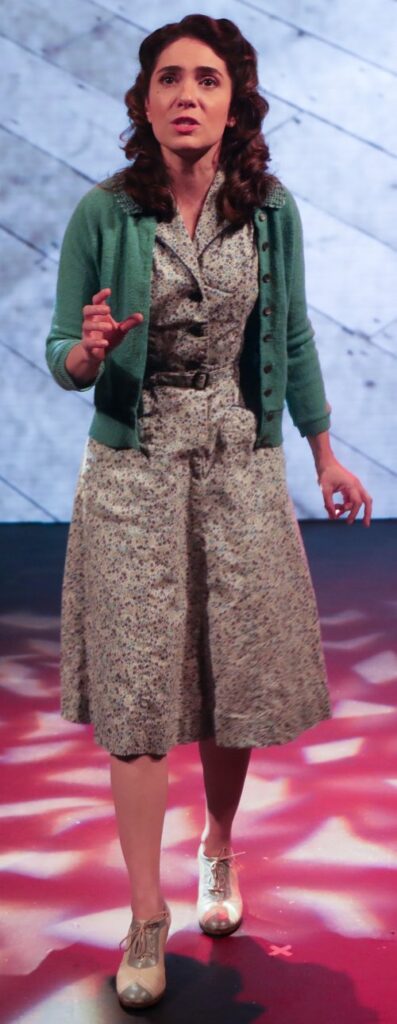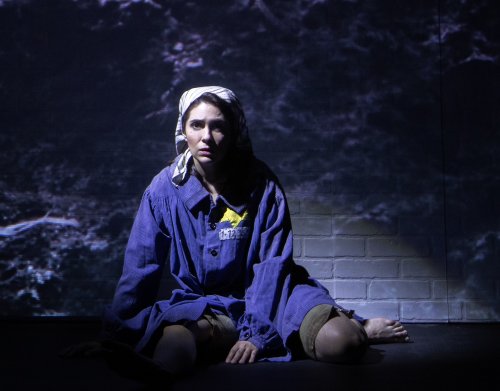
By: Darryl Reilly
After the shower we are smeared with a terrible smelling disinfectant and are given some “clothes”. One girl gets a child’s sweater with a pair of men’s pants; another gets an evening dress and tennis shoes; a woman next to me receives a men’s jacket but no pants with a pair of galoshes. I get a burlap sack dress and a pair of men’s shoes without shoelaces, about 4 sizes too big.
This raw Auschwitz observation is characteristic of the wrenching factual details that are imparted in the searing solo play, A Will To Live. The show is adapted by Kirk Gostkowski from Jewish Holocaust survivor Helena Weinrauch’s memoir of the same title. The sleek and eternally glamorous 99-year-old Ms. Weinrauch attended the first night’s performance which is under review; she appeared onstage at the curtain call for a triumphant audience ovation.

Masha King supremely portrays the German-parented Weinrauch from her 16-year-old carefree youth in Poland in 1939, and then throughout her harrowing travails in three concentration camps during World War II. The luminous Ms. King delivers a captivating and commanding performance during this full-length theatrical presentation. With her expressive voice and alluring stage presence, Ms. King is towering.
Director Rick Hamilton’s picturesque and dynamic staging has King alternatively in motion and still for optimum dramatic effect. Mr. Hamilton also harnesses the show’s high caliber elements of stagecraft for a compelling production. Video designer David Henderson provides plentiful stylized imagery, arrestingly depicting various Eastern European locales including concentration camps, and an eerie snowy death march.

These projections are complemented by Mr. Henderson’s impactful spare scenic design. Michael Abrams’ lighting design is a virtuoso display of moody dimness with a vintage sheen, evoking the dark past that is enacted. Periodic gunshots, slamming boxcar doors, squealing rats, and gut-wrenching screams are among the terrifying effects rendered by Greg Russ’ striking sound design. Mr. Russ also crisply realizes the recorded voice overs by the group of fine actors who play various other offstage characters. From choice everyday garments of the period to concentration camp uniforms, Debbi Hobson’s costume design is perfection.
Mr. Gostkowski’s stage adaptation of Weinrauch’s memoir is a faithful distillation of her text. It is arguably too faithful. The one-hour first act begins with Weinrauch’s recovery in Sweden after being liberated from Bergen-Belsen. Then her backstory in Poland is described, the Nazis invade, and she goes into hiding under a Christian identity. Eventually, she is caught by the Gestapo and tortured during an agonizing sequence. The over one-hour second act recounts the horrendous existence of life in the concentration camps. There is a chilling portrait of the Płaszów Labour Camp’s infamous commandant, Amon Göth, who was played by Ralph Fiennes in Schindler’s List. The finale is an epilogue which chronicles Weinrauch’s life up to the present, accompanied by recent video clips of her.

Lasting two hours and a half hours including an intermission, A Will To Live’s straightforward narrative approach contains sluggishness. A more contained, artful, and selectively condensed treatment could possibly have achieved even more momentum. Dramaturgical reservations aside, this world premiere production of A Will To Live is a powerful experience; it is a worthy edition to dramatizations of the Holocaust .
A Will To Live (through September 16, 2023)
Chain Theatre, 312 West 36th Street, in Manhattan
For tickets, visit www.chaintheatre.org
Running time: two hours and 30 minutes including one intermission
